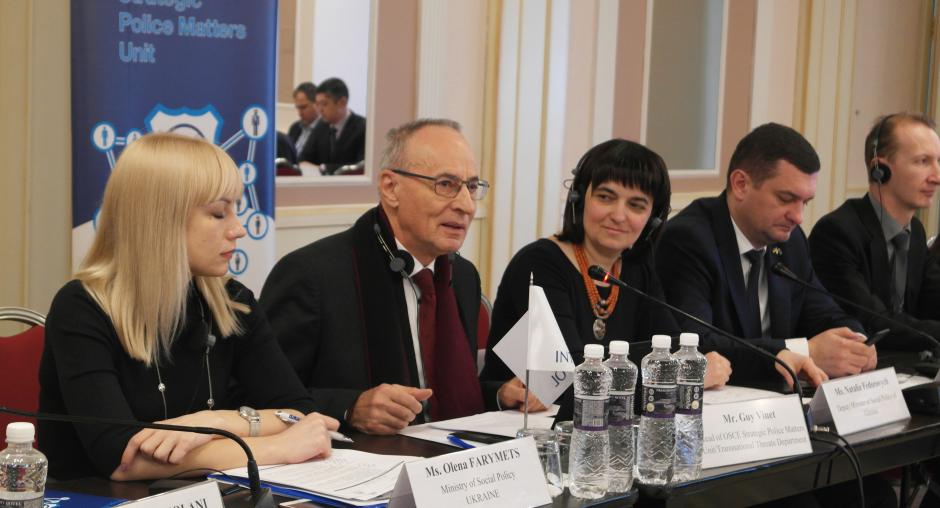Holistic approaches to countering human trafficking for labour exploitation explored at OSCE regional workshop in Kyiv

Some 70 representatives of national institutions of Ukraine and eight other OSCE participating States - the Czech Republic, France, Germany, Italy, Lithuania, Poland, Sweden and Turkey – completed a two-day workshop in Kyiv on 20 February 2019 focusing on holistic approaches to countering trafficking in human beings for the purpose of labour exploitation.
The workshop was organized by the Strategic Police Matters Unit of the OSCE Transnational Threats Department, Ukraine’s Ministry of Social Policy and the OSCE Office of Special Representative/Co-ordinator for Combating Trafficking in Human Beings, with the support of the OSCE Project Co-ordinator in Ukraine and INTERPOL.
Representatives of Ukraine’s Ministry of Social Policy, the Prosecutor General’s Office, the Labour Inspectorate, the National Police, the State Border Guard Service and the State Migration Service shared and exchanged information and good practices with their counterparts from the other countries with the aim of improving international co-operation and facilitating joint investigations.
Deputy Minister of Social Policy of Ukraine, Natalia Fedorovich, said human trafficking for the purpose of labour exploitation is an acute challenge for the country. She said it should be countered not only through enhanced co-ordination among national institutions but also through improving the professional level of experts and raising awareness about the international tools available to successfully address such cases.
The Deputy Interior Minister of Ukraine, Tetyana Kovalchuk, recognized the role of the OSCE in addressing the problem, which is mostly transnational in nature.
Representatives of civil society organizations and relevant international organizations also took part in discussions.
The workshop is part of a larger OSCE project to build local capacities to counter trafficking in human beings and the smuggling of migrants in Ukraine. The project is supported by Austria, France, Norway and Switzerland.
